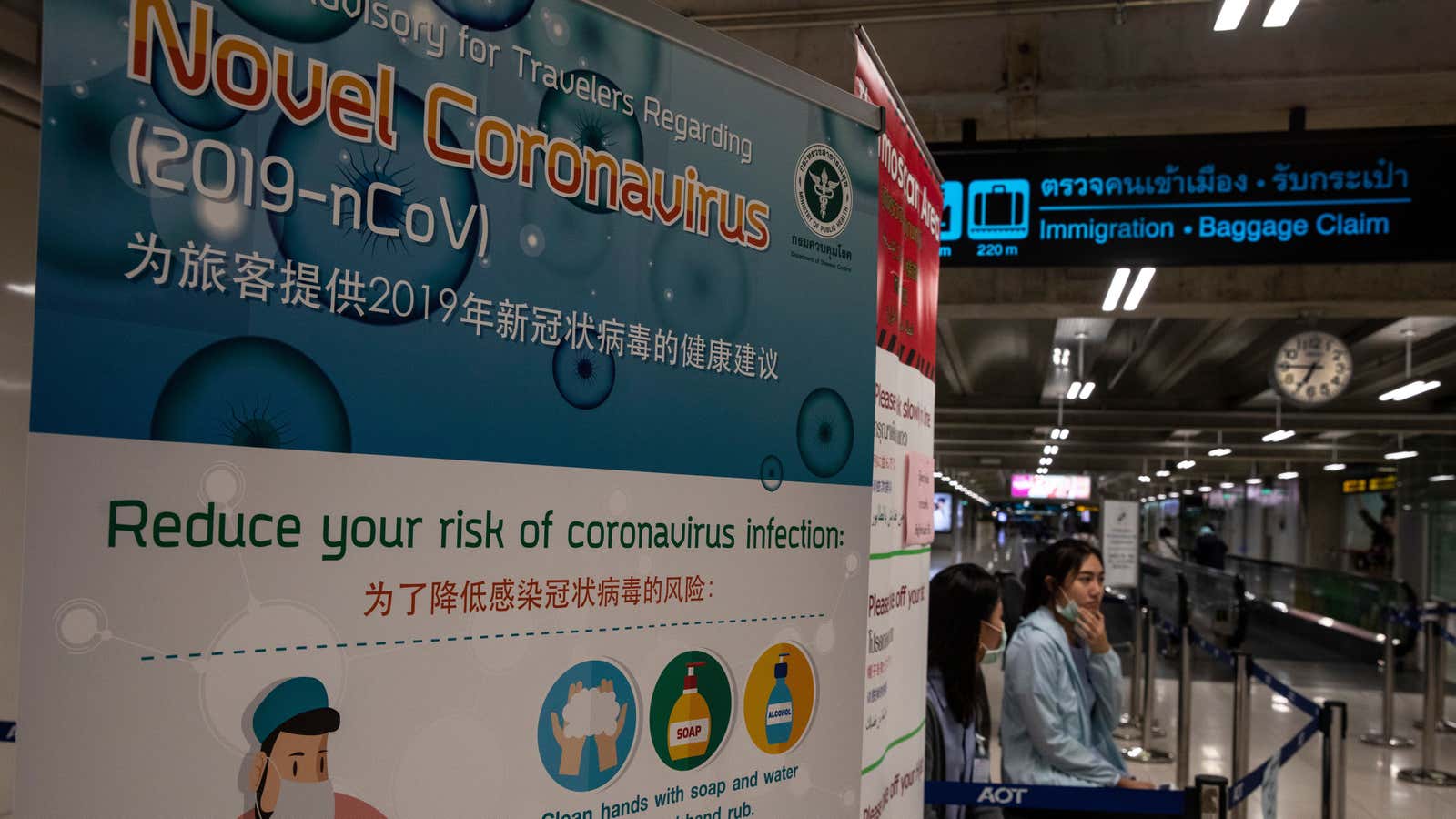What Travelers Should Know About Coronavirus

The coronavirus that causes COVID-19 (as we now call it ) is still predominantly circulating in China, with only about 2 percent of its cases occurring in other countries. However, if you are traveling, you may feel nervous about the possibility of exposure to the virus. Here are the World Health Organization’s recommendations for travelers as they discussed in a recent online interview .
You may not need to cancel your trip
In a crowded place such as an airport, the risk of contracting any disease is higher than if you stay at home. But the risk of contracting COVID-19 for travelers is practically zero everywhere.
However, WHO officials recommend checking with airlines, as many have suspended or reduced flights. And some countries have quarantined returning travelers, so check the policies for that.
Some airports check returning passengers for the virus, so be careful if you fly to one of them . There may be lines.
Don’t wear a mask unless you are sick
Masks do very little to help healthy people contract respiratory diseases, but they are good at preventing the transmission of germs from sick people to others.
Follow the same precautions as for seasonal flu.
The virus that causes COVID-19 spreads in the same way as seasonal flu, through droplets, such as coughing or sneezing. The same precautions apply:
- Wash your hands often, including before eating.
- If your hands seem clean, you can use hand sanitizer instead of washing.
- Cough or sneeze into a tissue and discard it, or if a tissue is not available, cough into your elbow instead of spraying the environment or your hands.
- Stay at least three feet away from people who appear sick.
- To protect your little ones, keep them close to you and away from others who may be ill.
- If you get sick, do all of the above and avoid contact with other people if possible. Seek medical attention if you suspect you have COVID-19 or are concerned about your health.
The good news is that the virus is not airborne, so air circulation in planes is unlikely to spread it through the cabin.
Understand that the virus is short-lived on the surface
If droplets containing the virus get on a surface, such as a doorknob, you could potentially pick it up. This is why hand hygiene is so important.
But the virus appears to survive on surfaces for less than 30 minutes. This means that the packages and contents of the luggage are not considered dangerous.